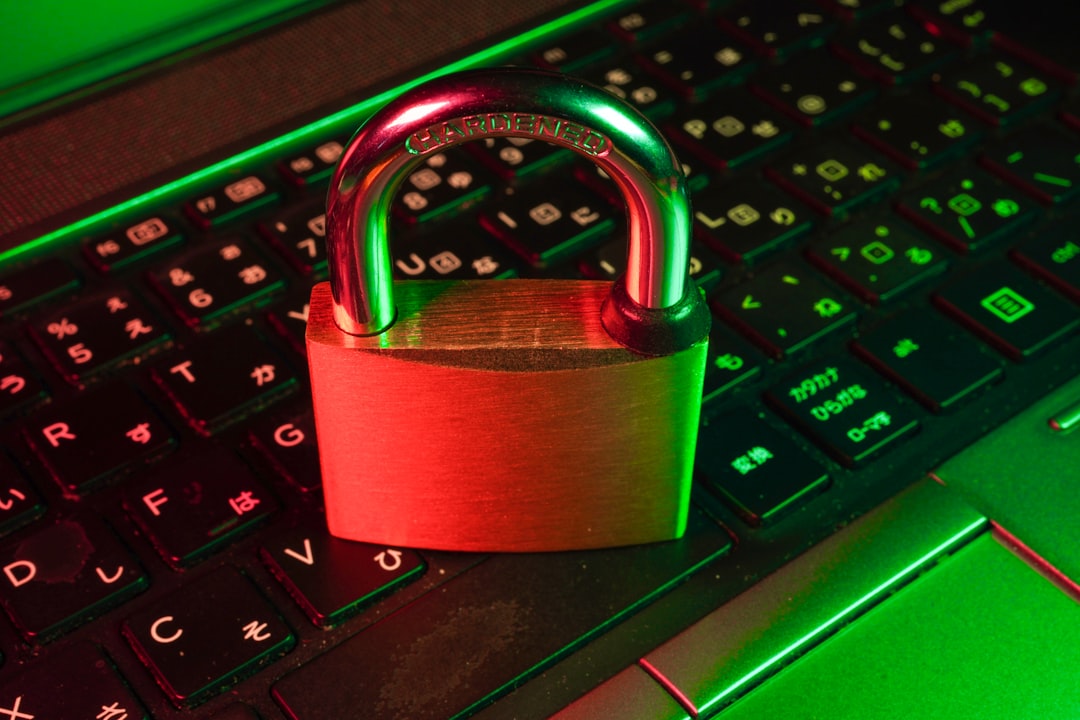#Protect Yourself From Cyber Threats

Inhaltsverzeichnis
In today’s digital world, cyber threats have become a common problem for individuals and businesses alike. Cyberattacks can have devastating effects on personal and professional lives, from financial loss to reputational damage. Therefore, it is crucial to take the necessary steps to protect yourself from cyber threats.
Firstly, it is essential to educate yourself about cyber threats and the potential risks they pose. You can start by familiarizing yourself with different types of cyberattacks, such as phishing scams and malware attacks. Additionally, you should follow best practices for cybersecurity, such as using strong and unique passwords and keeping your software up to date.
Another effective way to protect yourself from cyber threats is to use a reliable virtual private network (VPN) service like ExpressVPN. Your internet connection is encrypted using a VPN, making it more challenging for hackers to track your online activity. Vpnblade offers a great deal for ExpressVPN with a 2-year plan.
In conclusion, protecting yourself from cyber threats is an ongoing process that requires awareness and action. By taking necessary precautions, such as educating yourself about cyber threats and using a VPN service, you can reduce your risk of falling victim to cyberattacks and safeguard your personal and professional data.
How To Protect Yourself From Cyber Threats?
Protecting yourself from cyber threats is important in today’s interconnected world where cyberattacks are becoming more sophisticated and frequent. Here are some tips to help you protect yourself from cyber threats:
- Use strong passwords: Your internet connection is encrypted using a VPN, making it more challenging for hackers to track your online activity.
- Use two-factor authentication: To further secure your accounts, use two-factor authentication wherever feasible.
- Maintain software updates: To guarantee that you have the most recent security updates, update your operating system and applications often.
- Use antivirus software: To safeguard your computer from viruses and malware, use trusted antivirus software.
- Watch out for shady emails: Avoid opening files or clicking links in shady emails.
- Use a VPN: Use a Virtual Private Network (VPN) such as VPNBlade Express VPN 2 year plan to encrypt your online activity and protect your privacy.
- Educate yourself: Keep yourself informed about the latest cyber threats and best practices for protecting yourself from them.
By heeding these recommendations, you may considerably lower your chance of falling victim to online dangers and safeguard your private data.
What Are The Most Important Tips On Cyber Threats?
To protect yourself from cyber threats, here are some important tips:
- Keep your software updated: Regularly update your operating system, antivirus software, and other important software applications to avoid vulnerabilities.
- Use strong passwords: Create strong and unique passwords for all your online accounts and use a password manager to keep them secure.
- Be cautious with emails: Don’t click on links or download attachments from unknown or suspicious emails. Always verify the sender’s email address and be wary of emails asking for personal information.
- Use two-factor authentication: Enable two-factor authentication on all your online accounts to add an extra layer of security.
- Backup your data: Regularly backup your important data and store it securely in the cloud or an external hard drive.
- Use a VPN: Use a reputable VPN service like ExpressVPN to encrypt your internet connection and protect your online privacy.
- Educate yourself: Educate yourself: Keep up with the most recent cyberthreats and learn how to defend your company and yourself.
By following these tips, you can protect yourself from cyber threats and minimize the risk of a cyber attack.
What Are The Best Ways To Protect My Data From Cybercriminals?
To protect your data from cybercriminals, there are several best practices you can follow:
- Create secure passwords: by using a combination of capital and lowercase letters, numbers, and special characters. Never use the same password for several accounts.
- Make two-factor authentication available: Your accounts are made more secure by two-factor authentication. This implies that in order to log in, you will also need the code given to your phone or email.
- Keep your software updated: with the most recent security updates. This includes your operating system, antivirus software, and other programmes.
- Use a Virtual Private Network (VPN): A VPN hides your IP address and encrypts your internet connection, making it more difficult for hackers to intercept your data.
- Use malware-detecting software: To safeguard against viruses, spyware, and other online threats, install anti-malware software and keep it up to date.
- Be careful what you click: Don’t click on links or download attachments from unknown sources, as these can contain malware.
- Back up your data: Regularly back up your important data to an external hard drive or cloud storage service, so you can recover it if your device is compromised.
By following these tips, you can help protect your data from cybercriminals and reduce your risk of falling victim to cyber threats. Using a reliable VPN such as ExpressVPN 2-year plan and other cybersecurity tools can also add an extra layer of protection to your online activities.
What Resources Are Available To Help Me Protect Yourself From Cyber Threats?
Here are some resources that can help you protect yourself from cyber threats:
| Resource | Description |
| Antivirus Software | Antivirus software can help protect your computer from viruses and malware. Some popular options include Norton, McAfee, and Kaspersky. |
| Firewalls | A firewall is a security system that monitors and controls incoming and outgoing network traffic. Windows and Mac operating systems have built-in firewalls, and there are also third-party firewall programs available. |
| Password Managers | Password managers are programs that help you generate and securely store strong passwords. Some popular options include LastPass, Dashlane, and 1Password. |
| Two-Factor Authentication | Two-factor authentication is a security process that requires users to provide two different forms of identification to access an account. Many online services, such as Google and Facebook, offer two-factor authentication as an option. |
| VPN Services | A VPN (Virtual Private Network) encrypts your internet connection, making it more difficult for cybercriminals to intercept your online activity. Some popular VPN services include ExpressVPN, NordVPN, and CyberGhost. |
| Security Training | Many organisations offer online security training courses to help individuals learn how to protect themselves from cyber threats. Some examples include the National Cyber Security Alliance, the SANS Institute, and the Federal Trade Commission. |
It’s important to stay informed about the latest cyber threats and to take steps to protect yourself and your data. By using a combination of the resources listed above, you can significantly reduce your risk of falling victim to a cyber attack.
What Are The Best Practices For Protecting My Online Accounts?
Here are some best practices for protecting your online accounts:
- Use strong, unique passwords for each account, and change them regularly.
- Enable two-factor authentication (2FA) for your accounts, whenever possible.
- Avoid clicking on links or downloading attachments from unknown or suspicious sources.
- Keep your operating system and software up-to-date with the latest security patches.
- Use a reputable antivirus and anti-malware software and keep it updated.
- Be cautious when using public Wi-Fi, as these networks can be vulnerable to hackers.
- Use a virtual private network (VPN) when browsing the internet to encrypt your online activity and protect your privacy.
- Regularly monitor your accounts for suspicious activity and report any unauthorized access immediately.
- Be careful when sharing personal information online, and avoid posting sensitive information on social media.
- Educate yourself on the latest cybersecurity threats and stay informed about best practices for protecting your online accounts.
By following these best practices and using tools like VPNs, such as ExpressVPN 2 year deal, you can significantly reduce your risk of falling victim to cyber threats and protect your online accounts.
Conclusion:
protect yourself from cyber threats is crucial in today’s digital age where our personal and professional lives are increasingly intertwined with the internet. By following some simple best practices, such as using strong passwords, enabling two-factor authentication, and regularly updating your software, you can greatly reduce your risk of becoming a victim of cybercrime.
Additionally, there are a variety of resources available to help you stay informed and protect your online accounts, including cybersecurity blogs, government websites, and VPN services like ExpressVPN, which offer an extra layer of protection for your internet activity. By taking these steps, you can help ensure the safety and security of your sensitive data and online identity.
von Mia Smith
Wenn Ihnen der Artikel gefallen hat, vergessen Sie nicht, ihn mit Ihren Freunden zu teilen. Folgen Sie uns auch in Google News, klicken Sie auf den Stern und wählen Sie uns aus Ihren Favoriten aus.
Wenn Sie an Foren interessiert sind, können Sie Forum.BuradaBiliyorum.Com besuchen.
Wenn Sie weitere Nachrichten lesen möchten, können Sie unsere Technologie kategorie besuchen.




